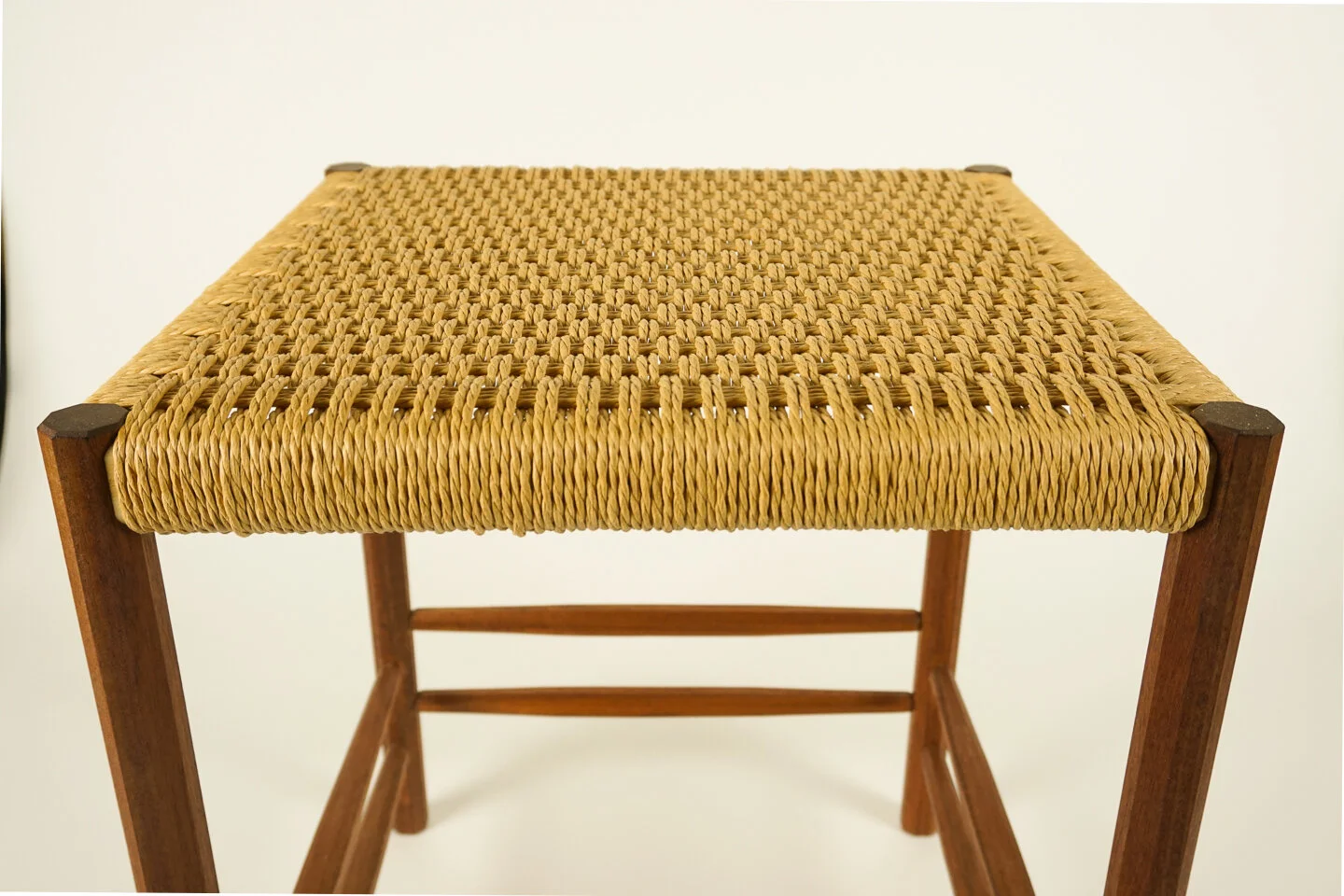Weaving for Furniture: Build and Weave a Danish Cord Stool
Five Days, Open to All
Summer 2025
July 14-18
In this 5-day workshop, you’ll build a small stool and weave the seat using traditional Danish cord—an iconic technique used in mid-century Scandinavian furniture. This class is designed for students of all experience levels, whether you're new to woodworking, interested in chairmaking, or simply want to explore handweaving a seat as a furniture craft.
We’ll begin by constructing the stool frame with clean, modern lines using straightforward machine-cut loose tenon joinery. Once assembled, you’ll learn how to tension and pattern the paper cord seat using a no-nails technique that employs a classic “double-wrapped” weave. Along the way, we’ll talk about the origins of this style, tips for consistency and comfort, and how this technique can be adapted for other projects like chairs and benches.
You’ll go home with a beautiful, Danish modern-inspired stool and the knowledge and skills to apply this versatile weaving technique to your next furniture project.
Course Objectives
Build a complete wooden stool using basic joinery
Learn and apply traditional Danish cord weaving techniques
Leave with a finished piece that is functional, beautiful, and ready for daily use
Learning Outcomes
Students will:
Gain hands-on experience with shaping and assembling furniture parts
Learn the fundamentals of paper cord weaving, including layout, tensioning, and pattern
Understand how materials, techniques, and design come together in modern seating
Develop confidence in combining woodworking and weaving in future projects
Tools
Required:
Small Tape measure
12” or 6” combination square
6” metal ruler
Medium-sized flat head screwdriver (for adjusting the weave)
2” or 3” spring clamp (for holding strands of cord)
Pencils for marking
Protective eyewear
Hearing protection
Recommended:
Hand protection: Danish cord can be rough on the hands - some people like to wear very thin leather gloves like golfing gloves or driving gloves that form to the fingers and still allow them to feel the cord and work between the thin sections of the weave. I mostly weave with my bare hands, but sometimes I use athletic tape to wrap parts of my fingers if they are chafed.
To shape the legs of the stool, hand tools will be available at the school, and students may also choose to shape legs with machines such as the bandsaw, spindle sander, or router. Students may also choose to bring personal hand tools for this purpose such as, but not limited to:
Jack plane
Smoothing plane
Block plane
Carving knife(s)
Rasps
Spoke shave
Chisels
Prerequisites
Open to all.
Class Information and Registration
Class is 9:00am to 5:00pm Monday through Friday in Building 315 at Fort Worden. Map
Please read our What to Expect page for general information about the School.
Please also read our Registration Policy.
Class size: 8
Cost: $1000
Materials Charge: $100
When you click on the Register link you will be able to register for the class or, if the class is full, sign up for the waitlist.



